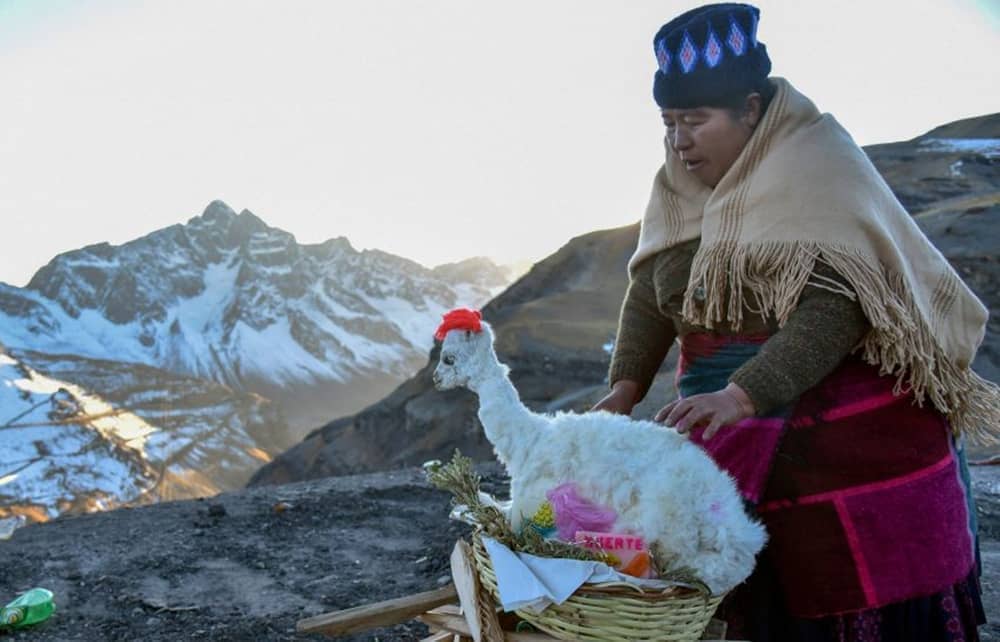La Paz
One summer a few years ago, I joined a group of miners in Potosí, Bolivia, to toast the Andean Mother Earth. I had just moved to La Paz, the country’s political capital, to try my hand as a journalist. As we chatted, a cup of warm beer and shots of spirits were handed around the circle. Before drinking, we had to pour a little on the earth and a little on the head of the white llama that was trussed up between us. My notebook from that day is specked with brownish stains. After we’d finished passing around the spirits, the llama was held down and its throat was cut.
‘The most important part of the llama is the blood,’ one miner said. ‘Blood is life, and the gods don’t bleed. If we don’t give them blood, they will take miners’ blood instead.’ He looked at me with a slightly menacing smile. ‘But there is one thing better than llama blood – gringo blood.’ They all cackled, and the drinks continued round.
I didn’t think too much of his joke at the time. Bolivian miners take some pleasure in shocking foreigners, whether by swigging near-pure alcohol, playing with dynamite or joking about human sacrifice. But the moment came back to me last month when a young man appeared on the news – slurring, bloodied and covered in dirt – claiming he had just punched his way out of a coffin buried under a Bolivian building site. He said he’d been used as a sullu: a sacrifice for the Pachamama or Mother Earth.

A sullu traditionally refers to a dried llama foetus. It may, for example, be buried under a building to appease the Pachamama and ward off accidents. The use of sullus is an ancient practice and remains commonplace.







Comments
Join the debate for just £1 a month
Be part of the conversation with other Spectator readers by getting your first three months for £3.
UNLOCK ACCESS Just £1 a monthAlready a subscriber? Log in